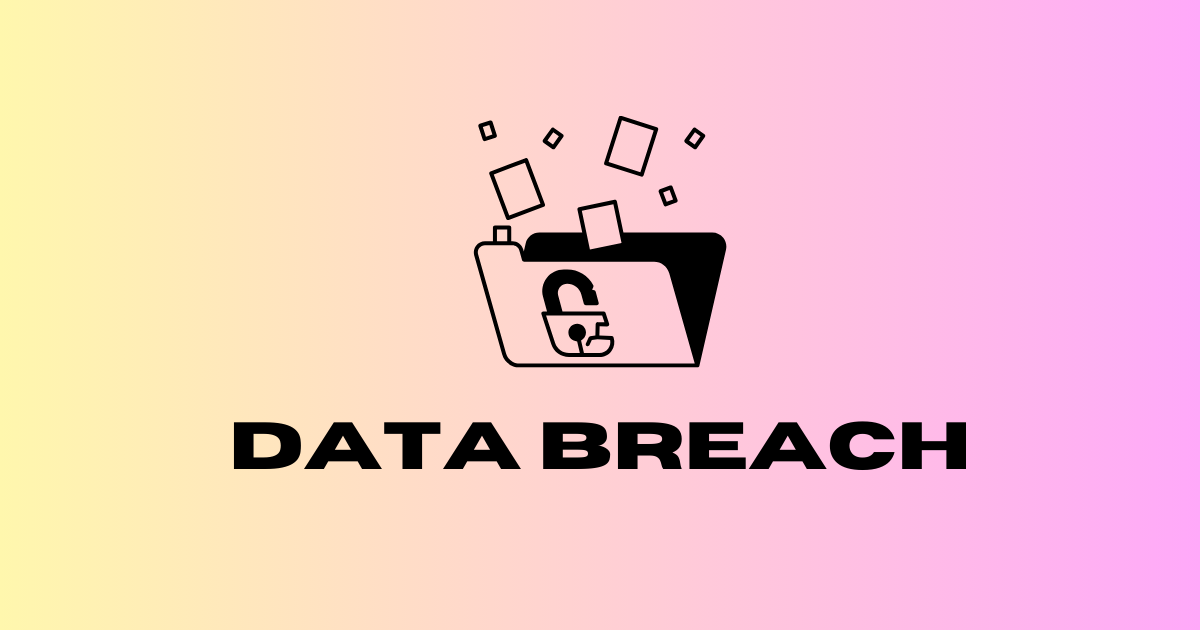Data breach- the mass privacy concern
The Rising Threat of Data Breaches: How Your Information Is at Risk
In today's digital world, data has become one of the most valuable commodities. Companies store vast amounts of personal and financial information, making them prime targets for cybercriminals. With the increasing number of cyberattacks, data breaches have emerged as a serious threat to individuals, businesses, and governments alike. But what exactly is a data breach, and how does it impact you?
What Is a Data Breach?
A data breach occurs when unauthorized individuals gain access to sensitive, confidential, or protected information. This can happen through hacking, insider threats, weak security protocols, or even accidental leaks. Once stolen, the data can be sold on the dark web, used for identity theft, or exploited in other malicious ways.
Major Data Breaches That Shook the World
Several high-profile data breaches in recent years have exposed millions of people to cyber threats. Here are some of the most notorious cases:
- Equifax (2017): One of the largest data breaches in history, exposing the personal data of 147 million people, including Social Security numbers and credit card details.
- Yahoo (2013-2014): Compromised the data of over 3 billion user accounts, making it the largest data breach ever recorded.
- Facebook-Cambridge Analytica (2018): Although not a traditional breach, millions of Facebook users' data were improperly harvested for political purposes.
- Marriott International (2018): Exposed the records of 500 million guests, including passport numbers and financial details.
These breaches highlight the vulnerabilities in data protection and the devastating consequences of weak cybersecurity measures.
How Data Breaches Happen
Cybercriminals use various methods to breach databases and steal information. Some common attack vectors include:
- Phishing Attacks: Deceptive emails or messages trick users into revealing their login credentials.
- Malware and Ransomware: Malicious software infects systems, allowing hackers to extract or encrypt data.
- Weak Passwords: Easily guessable or reused passwords provide easy access to accounts.
- Insider Threats: Employees or contractors with access to sensitive data can intentionally or unintentionally leak information.
- Unpatched Software: Outdated applications with security flaws are exploited by hackers to gain access.
Consequences of Data Breaches
The impact of a data breach can be far-reaching, affecting both individuals and organizations:
- Financial Losses: Companies may face lawsuits, fines, and reputational damage, while individuals may suffer financial fraud.
- Identity Theft: Stolen personal information can be used to commit fraud, open bank accounts, or apply for loans.
- Loss of Trust: Customers may lose confidence in businesses that fail to protect their data, leading to revenue loss.
- National Security Risks: Breaches involving government agencies can compromise national security and intelligence operations.
How to Protect Yourself
While no system is entirely foolproof, there are several steps individuals and businesses can take to minimize the risk of data breaches:
- Use Strong, Unique Passwords: Implement complex passwords and avoid reusing them across multiple accounts.
- Enable Two-Factor Authentication (2FA): Adds an extra layer of security beyond passwords.
- Beware of Phishing Scams: Always verify emails and links before clicking on them.
- Keep Software Updated: Regularly install security patches and updates for your devices and applications.
- Limit Data Sharing: Be cautious about sharing personal information online or with untrusted platforms.
- Monitor Your Accounts: Regularly check bank statements, credit reports, and online accounts for suspicious activity.
The Future of Data Security
As cyber threats continue to evolve, so must cybersecurity measures. Governments and businesses are investing in advanced encryption, artificial intelligence-driven security, and stricter regulations to safeguard sensitive data. However, individual awareness and vigilance remain the first line of defense against data breaches.
Data breaches are not just an inconvenience; they are a wake-up call for stronger digital security. By staying informed and adopting best practices, we can all play a role in protecting our data and preventing cybercrime.






